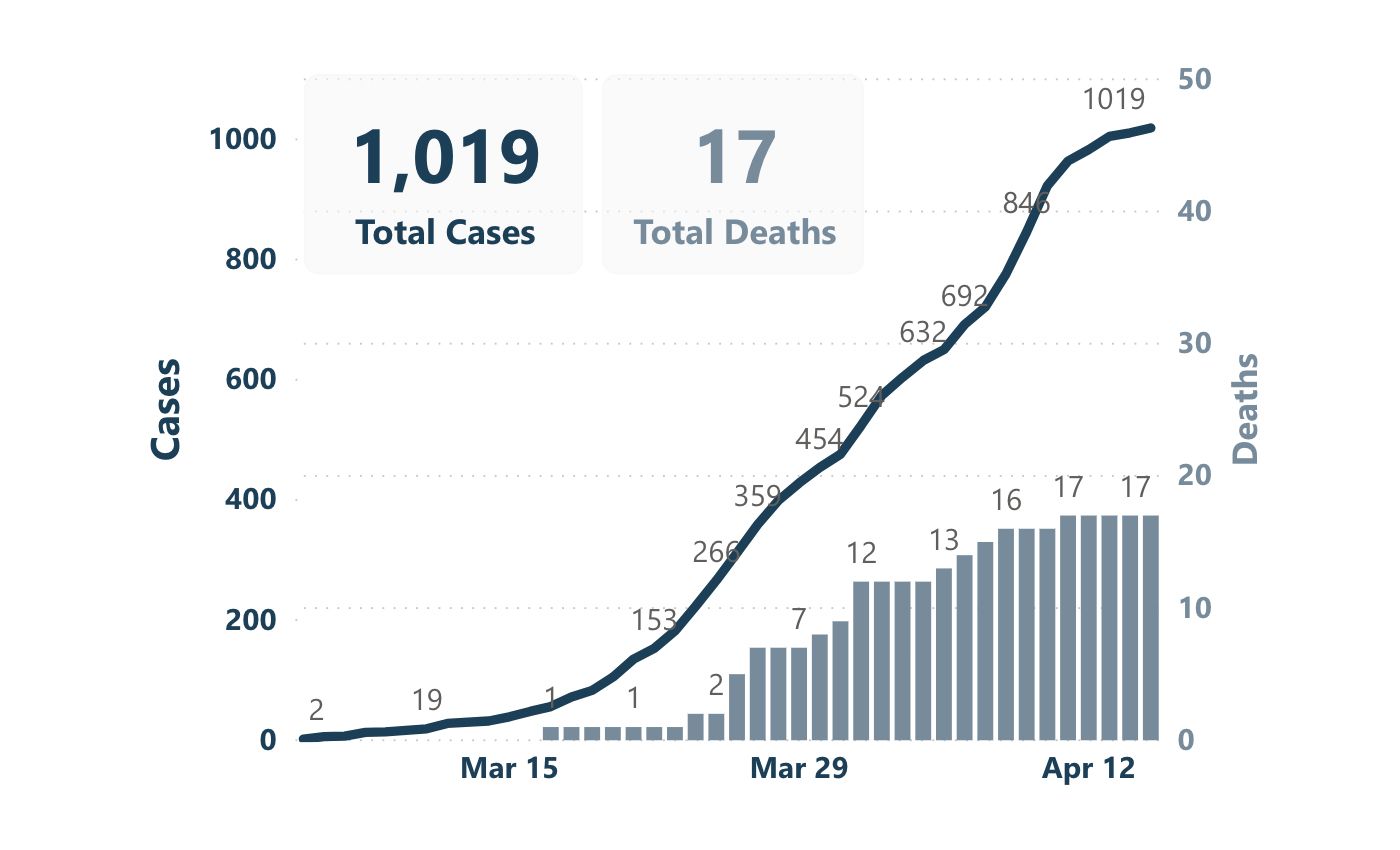There are both encouraging and concerning data points coming from the SF Department of Public Health on Thursday, with one of the former being the lowest one-day uptick in confirmed COVID-19 cases in the city in weeks.
After crossing the 1,000 mark of confirmed cases on Wednesday, San Francisco added only six new cases this morning, with a cumulative total of 1,019 cases. This would suggest a significant curve flattening thanks to shelter-in-place, however another data point from Tuesday may give reason for some ongoing concern.
As you may know, early last week, San Francisco began publishing some more detailed demographic and hospitalization data on COVID-19 cases. And as of this week, in addition to providing numbers of confirmed COVID-positive patients hospitalized in so-called acute and ICU beds, the city also began publishing data on suspected but as yet unconfirmed COVID cases who are also in hospitals. And as of April 14, this number jumped up from 53 to 85 — with 78 suspected cases now in acute beds, and 7 in ICU beds. Add to that the 88 confirmed COVID cases in hospitals (63 acute, 25 ICU), and we could be looking at both a surge in confirmed cases and a jump in possibly fatal cases in the city.

Still, this is not looking like the overwhelming surge that many feared, and indeed San Francisco is faring better than most other cities where the coronavirus emerged in early hot spots.
The graph below shows San Francisco's cumulative case total and death total, illustrating the flattening curve — and there have been no new COVID deaths reported in the city in five days.

The Bay Area is also faring well overall, though a spate of nursing home clusters has led to spikes in deaths in Alameda and San Mateo counties. Though cumulatively the Bay Area has now seen 5,679 confirmed coronavirus cases and counting, and 176 deaths.

The relative quiet in local ICUs and COVID wards has led to guilt among healthcare workers here as they watch the news about what their colleagues elsewhere have been facing.
As NBC Bay Area reported over the weekend, a group of 12 doctors and 8 nurses from UCSF flew to New York several days ago in order to offer help in hospitals there, because San Francisco has seen relatively few severe cases by comparison. UCSF said 200 doctors and nurses had volunteered for the trip, and 20 were selected.
"Many of us who are on the front lines feel a sense of guilt in seeing the suffering from colleagues who are across the country in Elmhurst, New York City, New Orleans and Michigan," said UCSF Dr. Armond Esmaili.
The BBC credits California, especially the Bay Area, with getting ahead of the virus curve during the crucial early days in March.
Dr. Neha Nanda, medical director of infection prevention and antimicrobial stewardship at Keck Medicine at the University of Southern California, tells the BBC that just a few days of distancing sooner could have a huge difference in a pandemic. "Even being one day ahead can have a huge impact," she says. "The morbidity we will be able to avert, the mortality we will be able to avert — it's huge."

